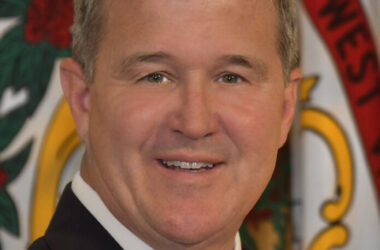By Rich Sutphin
Executive director of the West Virginia Rural Health Association
It’s been said that age is but a number, but for patients living with End-Stage Renal Disease (ESRD), that number can determine whether they have access to life-saving treatment or not. In our current system, all Americans over age 65 can purchase supplemental insurance to help cover the expenses that are not covered by Medicare. Yet for ESRD patients under age 65 in many states, including West Virginia, they must come up with the 20% not covered by Medicare, putting many patients in a serious financial bind, while virtually eliminating access to a lifesaving transplant for others.
All Medicare members should be treated equally, especially for dialysis and kidney transplants.
West Virginia’s state lawmakers have the power to expand coverage for all kidney patients, regardless of age, if only they have the political will to do so.
When someone is diagnosed with ESRD, there are two primary treatment options available. The most common is dialysis, which helps to replace the function of a kidney, but requires frequent, hours-long treatment cycles every week. The other, and most advantageous, treatment is to receive a kidney transplant, which allows patients to go about their lives without the hassle of frequent treatment. For many, receiving a kidney transplant enables them to stay in the workforce.
While both options are effective and give patients a healthy and positive outlook, both treatments are significantly expensive. The average monthly cost of dialysis is more than $10,000 according to research published in Jama Internal Medicine, while a kidney transplant costs more than $400,000 according to Kidney360.
To ensure ESRD patients can access these treatments, Medicare covers 80% of the costs for patients of any age. To cover the other 20%, patients can sign up for a specialized Medigap plan, unless you live in West Virginia and are under the age of 65. Many states have already passed laws to mandate coverage for those under 65.
This creates a significant financial burden for West Virginians under age 65 who have ESRD. Unless the patient or their spouse gets health insurance from an employer, they will be on the hook for tens of thousands in treatment costs just to manage their condition. In this instance, using the averages mentioned above, a patient without access to Medigap coverage would have to pay $80,000 out of pocket for a transplant. In addition, many workplace policies have significant deductibles and copayments which means there could still be a major burden on the patient.
Costs of this magnitude would be extremely difficult for most Americans to afford, but they are especially burdensome for ESRD patients. ESRD makes it more difficult for many patients to continue working and earning income full-time, so unless they have health insurance from a spouse, paying out of pocket for coverage is a significant burden. For younger ESRD patients in the Mountain State, who cannot access Medigap plans, covering the cost of treatment on their own is nearly impossible.
This is especially troublesome, because West Virginia has the 6th highest incidence rate of ESRD, and the third-lowest rate of dialysis patients who are on the kidney transplant waitlist. Complicating matters further, for many West Virginians, the nearest kidney transplant center is Maryland or Pennsylvania, both of which offer affordable Medigap plans to ESRD patients under 65 – meaning many West Virginians under 65 who go to those centers will be less favored to receive a transplant because they lack the proper coverage.
This status quo doesn’t have to stay in place forever. Kentucky, for example, recently passed a measure that extends Medigap coverage to all ESRD patients regardless of age, meaning no one in the commonwealth will ever have to worry about affording life-saving treatments like dialysis or a kidney transplant. Our state lawmakers can and should pass similar legislation that extends Medigap coverage for all patients regardless of age.
ESRD is a serious condition, but medical advances have enabled patients to successfully manage their condition and go on with their lives. We need to ensure that every West Virginian, regardless of age, can reap the benefits of these treatments without breaking the bank. Above all, Medicare patients should be treated equally, especially when it comes to kidney care.
Rich Sutphin, Ph.D., is executive director of the West Virginia Rural Health Association.
[Not for publication: Rich Sutphin may be contacted at 304-435-7491 or [email protected].]







